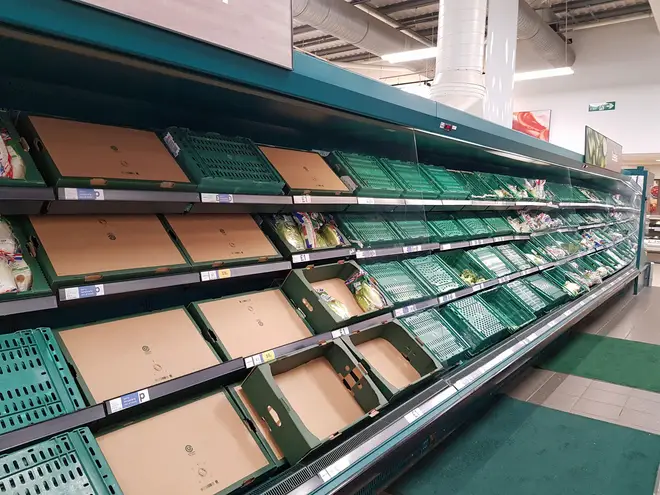
Clive Bull 1am - 4am
8 October 2021, 18:30

More than one in six adults in the UK have been unable to buy essential food items in the last two weeks due to the ongoing supply chain crisis, a study has found.
The survey by the Office for National Statistics (ONS) showed they were unable to purchase such goods because they were not available.
The survey - which saw responses from 3,326 adults - asked about people's experiences of shortages over the past fortnight.
Almost a quarter (23 per cent) said they had been unable to buy non-essential food items too, with only 57 per cent saying everything they needed had been available to buy.
It comes as Number 10 announced on Friday that the former head of Tesco - Sir David Lewis - had been appointed as a supply chain adviser until the end of the year.
Read more: Fears of toilet roll shortage as spiralling energy prices could trigger supply crisis
Read more: Supply chain crisis: No 10 brings in former Tesco boss to save Christmas

Supply chain pressures 'a global phenomenon'
Fuel was another area hit hard for consumers, with one in seven (15 per cent) of those responding to the survey unable to buy it in the previous two weeks.
Petrol pumps across the country have been left dry in recent weeks due to the shortage of drivers, leading to backed up queues and brawls breaking out on forecourts.
Though most parts of the courtly have been able to return to normal fuel levels, London and the South East have continued to face challenges.
Read more: Fuel industry says recovery 'not quick enough' as pumps left dry in London and South-East
It comes days after the army was drafted in to drive fuel tankers amid the ongoing crisis.
Defence Secretary Ben Wallace said the army was prepared to "sustain" fuel deliveries for "weeks or months" if needed, but he also said he thought an "equilibrium" between fuel supply and demand would soon be reached.